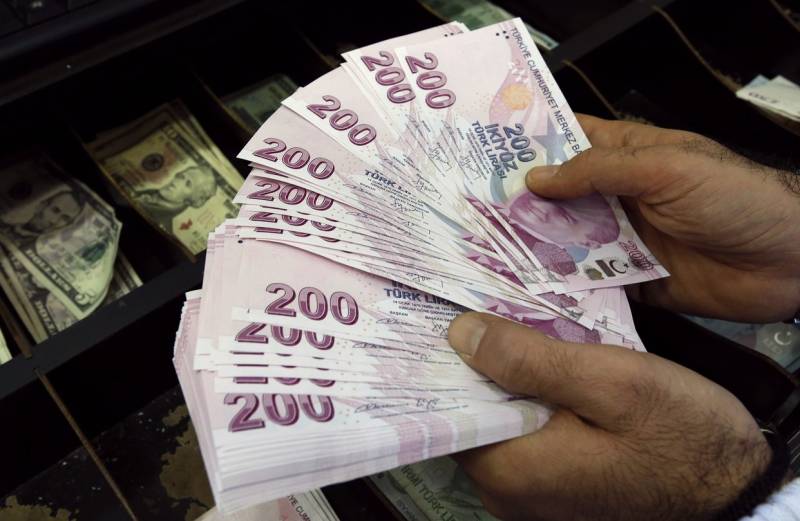Turkey's central bank on Tuesday relaxed foreign exchange rules to bolster the lira but the move, shrugged off by analysts, did little to stem the stricken currency's downturn.
The bank said it had reduced its foreign exchange reserve requirement ratios to inject 1.5 billion dollars into the market.
But analysts said more firepower was needed, with one saying markets were unimpressed with the “fairly toothless” move.
The bank raced to stop the currency's slide after political instability and security fears in the country following a bloody 2016 drove it to a record low on Monday.
The lira recovered slightly against the dollar after the bank's announcement. By 14:30 GMT it was down 1.6 per cent at 3.77 against the dollar, after an earlier 2 per cent gap.
“Additional steps may be taken in order to maintain price stability and financial stability,” the bank said.
Analysts said the central bank would still be under pressure to raise rates when it meets on January 24. While the lira had pared some of its losses against the dollar “history suggests this may be temporary,” said William Jackson at Capital Economics.
'Spooked'
“With policymakers clearly spooked by the decline in the lira and today's moves likely to have only a short-term impact, outright hikes in official interest rates look increasingly likely”.
The lira, which has lost around 20 per cent in value against the dollar over the last three months, had slumped to a new low Monday as political uncertainty in the country took its toll.
Pounded by higher-than-expected inflation and security fears, it quaked over a warning from ratings agency Moody's that the slew of attacks in the country were likely to weigh on the economy and squeeze the country's banks.
Turkey's Deputy Prime Minister Nurettin Canikli on Tuesday called the Moody's statement “irrational” and “an attack”.
Analysts had predicted the debate in Turkey's parliament over a controversial new draft constitution aimed at expanding the powers of presidency under Recep Tayyip Erdogan could compound the currency's woes.
The debate kicked off on Monday and is expected to last two weeks, though the uncertainty could drag on for months. If the measure is approved by parliament, a referendum is expected to take place within 60 days, indicating a date in late March or early April.
“The market sees today's action as fairly toothless,” and the move “will not do anything to reverse the slide in the currency,” City Index research director Kathleen Brooks told AFP.
'Further downside ahead'
The lira's volatility “is down to the political uncertainty and fears that President Erdogan's rapid expansion of powers is eroding the country's claim to be a democracy.
“This fear won't be eradicated by central bank action, so there could be further downside ahead,” she warned.
NFS Macro analyst Nick Stamenkovic agreed the bank's intervention was “unlikely to provide much support for the beleaguered currency”.
Ahead of the announcement, LCG senior market analyst Ipek Ozkardeskaya said the biggest concern was the “serious threat” to the country's parliamentary regime.
“We stay cautiously away from lira and lira denominated assets and warn that the sell-off could continue despite the deeply oversold market conditions,” she added.
Turkey's rating was lowered to junk status by Moody's and Standard & Poor's last year, and it is facing a similar move by Fitch later this month.
The central bank first attempted to slam the breaks on the lira plunge in November by raising interest rates for the first time since 2014.






